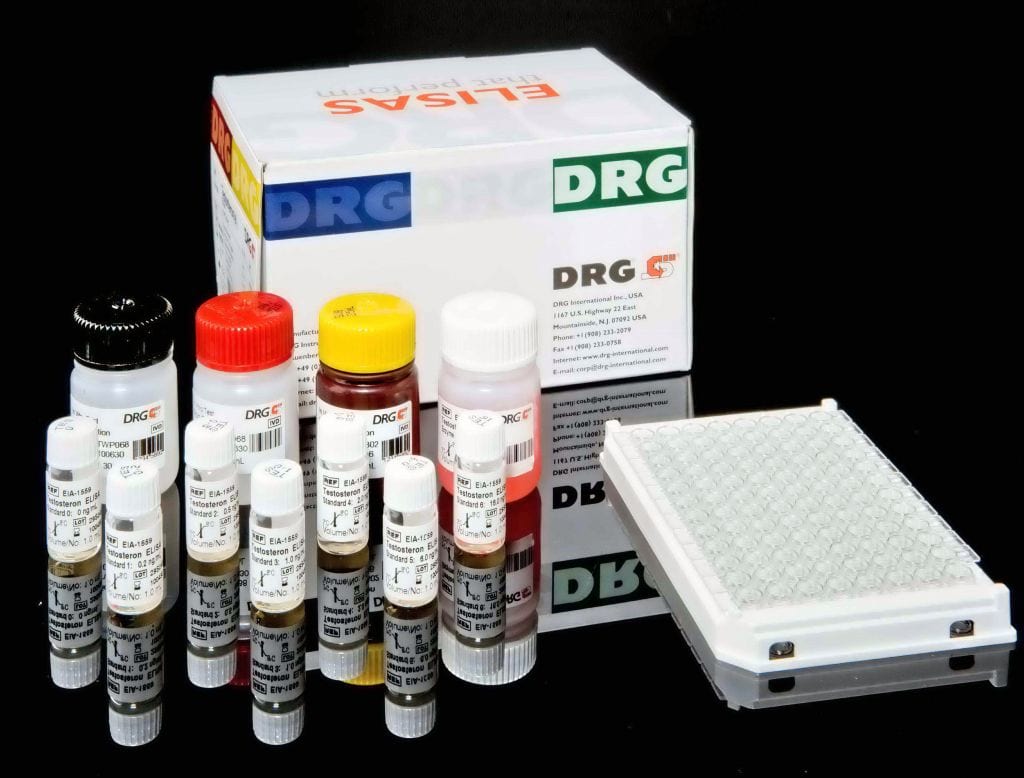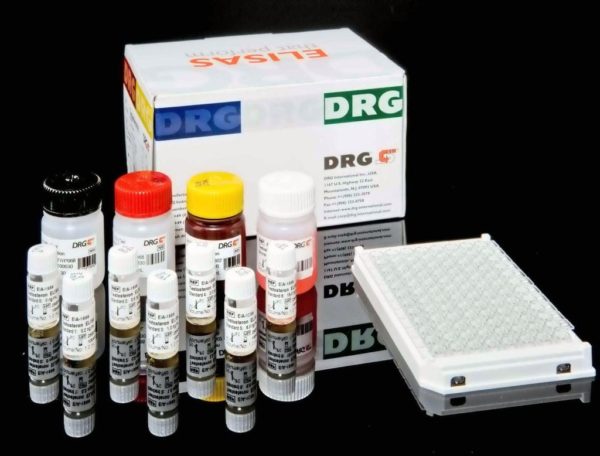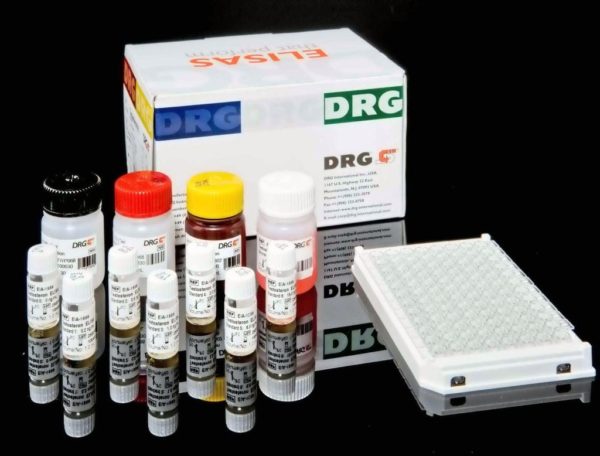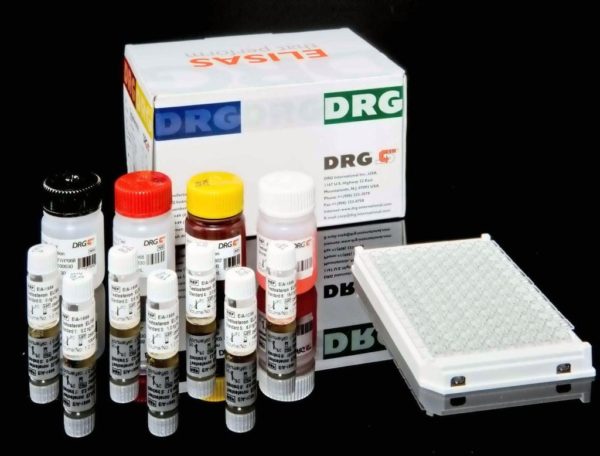Description
An enzyme immunoassay for the qualitative and semiquantitative determination of IgG-class antibodies to Dengue virus in serum.
Dengue virus is a single-stranded RNA virus of about 50 nm in diameter belonging to the genus Flavivirus. Dengue and dengue hemorrhagic fever are caused by one of four closely related, but antigenically distinct, virus serotypes (DEN-1, DEN-2, DEN-3, and DEN-4). Infection with one of these serotypes does not provide cross-protective immunity, so persons
living in a dengue-endemic area can have four dengue infections during their lifetimes. The viruses are transmitted by Aedes aegypti, a domestic, diurnal-biting mosquito that prefers to feed on humans.Infection with dengue viruses produces a spectrum of clinical illness ranging from a nonspecific viral syndrome to severe and fatal hemorrhagic disease.It is primarily a disease of the tropics; its global distribution is comparable to that of malaria, and an estimated 2.5 billion people live in areas at risk for epidemic transmission.- Globally, there are an estimated 50 to 100 million cases of dengue fever and several hundred thousand cases of dengue hemorrhagic fever.- The case-fatality rate of DHF in most countries is about 5%; most fatal cases are among children and young adults.- Important risk factors for DHF include the strain and serotype of the infecting virus, as well as the age, immune status, and genetic predisposition of the patient.- Risk groups: residents of or visitors to tropical urban areas.
The DRG Dengue Virus IgG ELISA Kit is a solid phase enzyme-linked immunosorbent assay (ELISA) Microtiter wells as a solid phase are coated with Dengue-2 Virus antigen. Diluted patient specimens and ready-for-use controls are pipetted into these wells. During incubation Dengue Virus-specific antibodies of positive specimens and controls are bound to the immobilized antigens. After a washing step to remove unbound sample and control material horseradish peroxidase conjugated anti-human IgG antibodies are dispensed into
the wells. During a second incubation this anti_IgG conjugate binds specifically to IgG antibodies resulting in the formation of enzyme-linked immune complexes. After a second washing step to remove unbound conjugate the immune complexes formed (in case of positive results) are detected by incubation with TMB substrate and development of a blue color. The blue color turns into yellow by stopping the enzymatic indicator reaction with sulfuric acid. The intensity of this color is directly proportional to the amount of Dengue Virus-specific IgG antibody in the patient specimen. Absorbance at 450 nm is read using an ELISA microtiter plate reader.




